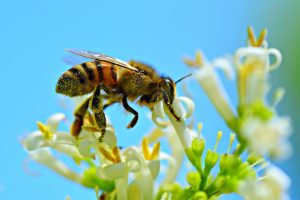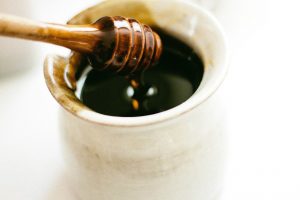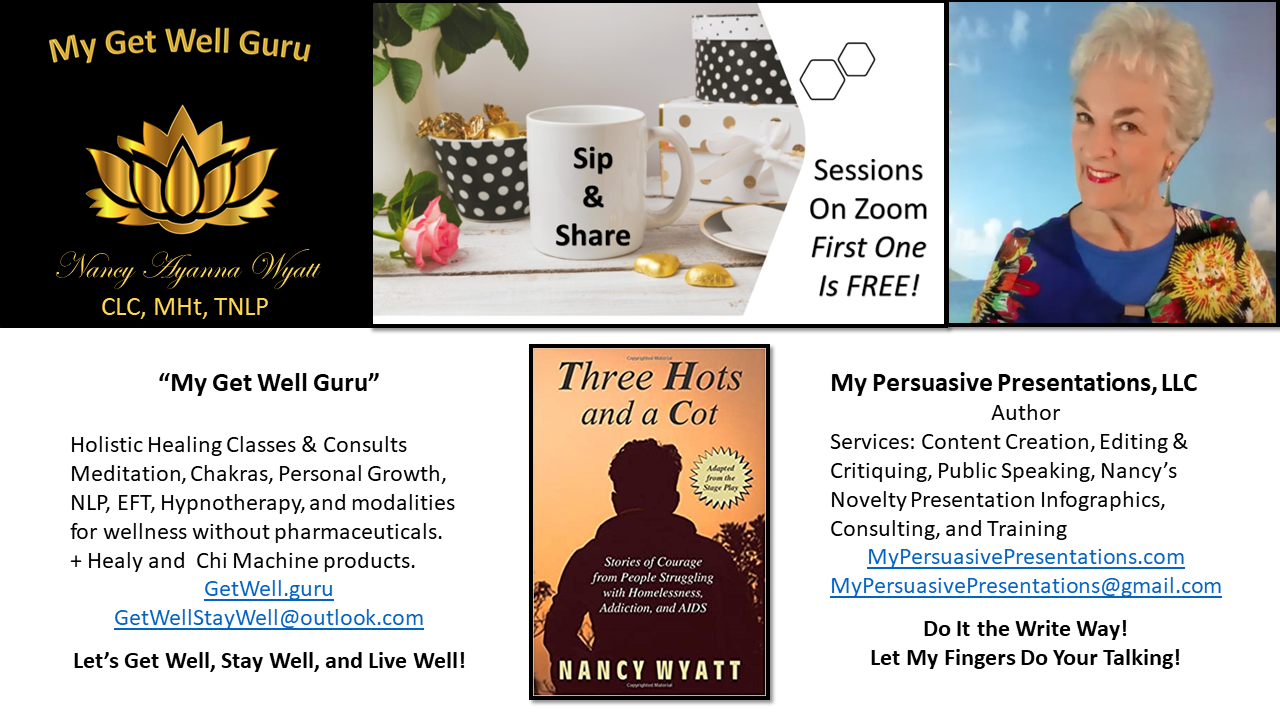Oh, Honey, Look What I Found!
 It all began when I was researching “honey” (like bees make) as a prescription for what ails us. That led me to Nathaniel Altman, author of Eating for Life: A Book about Vegetarianism. His publisher is Simon and Schuster. He is the author or co-author of over twenty other books on holistic health, diet, nature, palmistry, and other metaphysical subjects.
It all began when I was researching “honey” (like bees make) as a prescription for what ails us. That led me to Nathaniel Altman, author of Eating for Life: A Book about Vegetarianism. His publisher is Simon and Schuster. He is the author or co-author of over twenty other books on holistic health, diet, nature, palmistry, and other metaphysical subjects.
One of those books is The Honey Prescription. Here is an excerpt.
Honey was used by the ancient Egyptians to treat skin infections and burns, while early Greek physicians prescribed honey to heal stomach problems, insomnia, sore throats, colds and other maladies. Honey remained a popular folk remedy until well into the twentieth century.
Wow! What an education when you keep looking for more! For example, I learned never to give raw honey to infants younger than one year old (see details below). Let’s explore a bit…but, first…
Disclaimer: This Website Does Not Provide Medical Advice
All information contained on this website is informational only. That includes, but is not limited to, text, graphics, images, links, and any other material. No material on this site is a substitute for professional medical advice, diagnosis, or treatment. Always seek the advice of your physician or other qualified health care provider with any questions you may have regarding a medical condition or treatment. Do that before undertaking a new health care regimen and never disregard professional medical advice or delay in seeking it because of something you have read on this website.
So, What About Honey?

Thanks to the National Institutes of Health (NIH), I’m sharing the abstract (summary) of an Open Access article distributed under the terms of the Creative Commons Attribution License, (http://creativecommons.org/licenses/by/3.0/)
Abstract
Honey is a by-product of flower nectar and the upper aero-digestive tract of the honey bee, which is concentrated through a dehydration process inside the bee hive.
Honey has a very complex chemical composition that varies depending on the botanical source. It has been used both as food and medicine since ancient times. Human use of honey is traced to some 8000 years ago as depicted by Stone Age paintings.
In addition to important role of natural honey in the traditional medicine, during the past few decades, it was subjected to laboratory and clinical investigations by several research groups and it has found a place in modern medicine.
Honey has been reported to have an inhibitory effect on around 60 species of bacteria, some species of fungi and viruses. Antioxidant capacity of honey is important in many disease conditions and is due to a wide range of compounds including phenolics, peptides, organic acids, enzymes, and Maillard reaction products. Honey has also been used in some gastrointestinal, cardiovascular, inflammatory and neoplastic states.
This review covers the composition, physico-chemical properties and the most important uses of natural honey in human diseases.
To read the entire article (well worth it), Click Here.
PubMed Is A Great Resource for Info About Medical Research
Note: you can find all kinds of research on all kinds of subjects at PubMed.gov. Here is an excerpt from another Abstract:
It has broad spectrum anti-biotic, anti-viral and anti-fungal activities. Honey prevents and kills microbes through different mechanism such as elevated pH and enzyme activities. Till now, no synthetic compound that works as anti-bacterial, anti-viral and anti-fungal drugs has been reported in honey yet it works against bacteria, viruses and fungi while no anti-protozoal activity has been reported. Potent anti-oxidant, anti-inflammatory and anti-cancerous activities of honey have been reported. Honey is not only significant as anti-inflammatory drug that relieve inflammation but also protect liver by degenerative effects of synthetic anti-inflammatory drugs.
Medical Grade Honey
medical–grade honey (active Leptospermum honey [ALH])

According to WebMD, Medical Grade Honey has been used for
- Preventing and treating cancer
- Reducing high cholesterol
- Reducing inflammation inside the body
- Treating diabetes
- Treating eye, ear, and sinus infections
- Addressing gastrointestinal problems
- The gastrointestinal organs include the organs that food and liquids travel through when they are swallowed, digested, absorbed, and leave the body as feces. These organs include the mouth, pharynx (throat), esophagus, stomach, small intestine, large intestine, rectum, and anus.
- The gastrointestinal tract is part of the digestive system.
WebMD says the evidence is limited on whether it works for these conditions. It also notes:
The honey used to treat wounds is medical-grade honey. It is specially sterilized and prepared as a dressing. So the jar of manuka honey in the pantry shouldn’t be part of your first aid kit. Wounds and infections should be seen and treated by a health care professional.
Healthline Overview of Honey Usage
Raw honey has been used as a folk remedy throughout history and has a variety of health benefits and medical uses. It’s even used in some hospitals as a treatment for wounds. Many of these health benefits are specific to raw, or unpasteurized, honey. Most of the honey you find in grocery stores is pasteurized. The high heat kills unwanted yeast, can improve the color and texture, removes any crystallization, and extends the shelf life. Many of the beneficial nutrients are also destroyed in the process.
Benefits of Honey
The Healthline link I’ve provided you expands on all the items below. But, to prevent keeping you here until next year, I’ll summarize their list. Honey is:
- A good source of antioxidants (anti-aging as it fights free radicals)
- Antibacterial and antifungal properties
- Healing for wounds
- A phytonutrient powerhouse
- Help for digestive issues
- A potent prebiotic, meaning it nourishes the good bacteria that live in the intestines
- Able to soothe a sore throat + act as a cough suppressant
Are There Risks In Using Raw Honey ~ Especially for Kids?
In addition to beneficial prebiotics and nutrients, raw honey can also carry harmful bacteria such as Clostridium botulinum. This is particularly dangerous for babies. Never give raw honey to an infant less than a year old.
You can get botulism poising from raw honey. Symptoms of botulism poisoning in infants may include:
- constipation
- slow breathing
- sagging eyelids
- absence of gagging
- loss of head control
- paralysis that spreads downward
- poor feeding
- lethargy
- weak cry
In adults, symptoms can include an initial short period of diarrhea and vomiting. You might experience constipation and more severe symptoms, such as blurred vision and muscle weakness. See a doctor if you experience any of these symptoms after eating raw honey.
Healthline shares an example of how to use honey for asthma.
Honey appears most helpful as a nighttime cough suppressant. A form of nighttime asthma, called nocturnal asthma, can cause coughing, wheezing, and chest tightness. These symptoms may disturb your sleep.
Researchers at UCLA suggest taking 2 teaspoons of honey at bedtime. It’s believed that the sweetness of honey triggers your salivary glands to produce more saliva. This may lubricate your airways, easing your cough. Honey may also reduce inflammation in the bronchial tubes (airways within the lungs) and help break up mucus that is making it hard for you to breathe.
Talk to Me!
If you already have used or decide to try using honey as a remedy for various conditions, let me know how it turns out. I’d love to hear from you!
Disclaimer
Remember, neither I nor my website provides medical advice nor do we take the place of medical advice and treatment from your personal physician. You must not use this information to diagnose, treat, cure, or prevent any disease. It is merely “food for thought” and further exploration.
Please consult your physicians or other qualified health professionals about any treatment of medical conditions. I am not liable or responsible for any misunderstanding or misuse of the information contained on this site. You are solely responsible for any loss, damage, or injury caused – or alleged to be caused, directly or indirectly – by any treatment, action, or application of any food or food source discussed on this website.
The U.S. Food & Drug Administration has not evaluated the statements on this website.
Let’s Get Well, Stay Well, and Live Well
